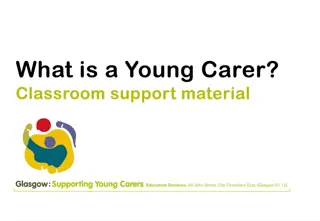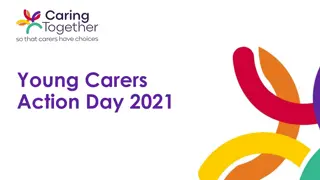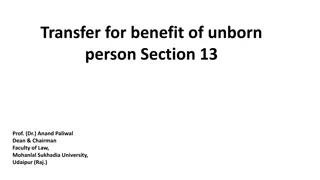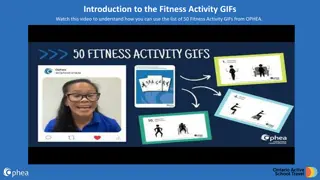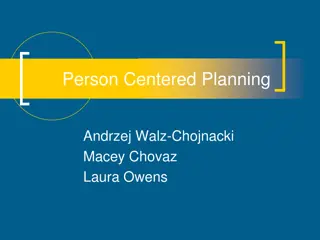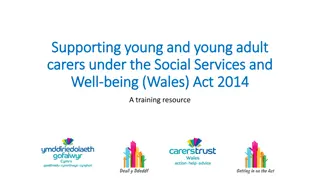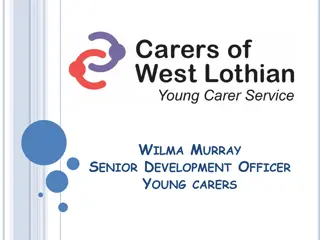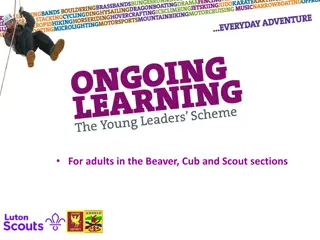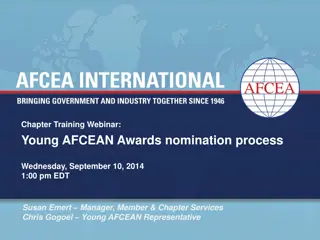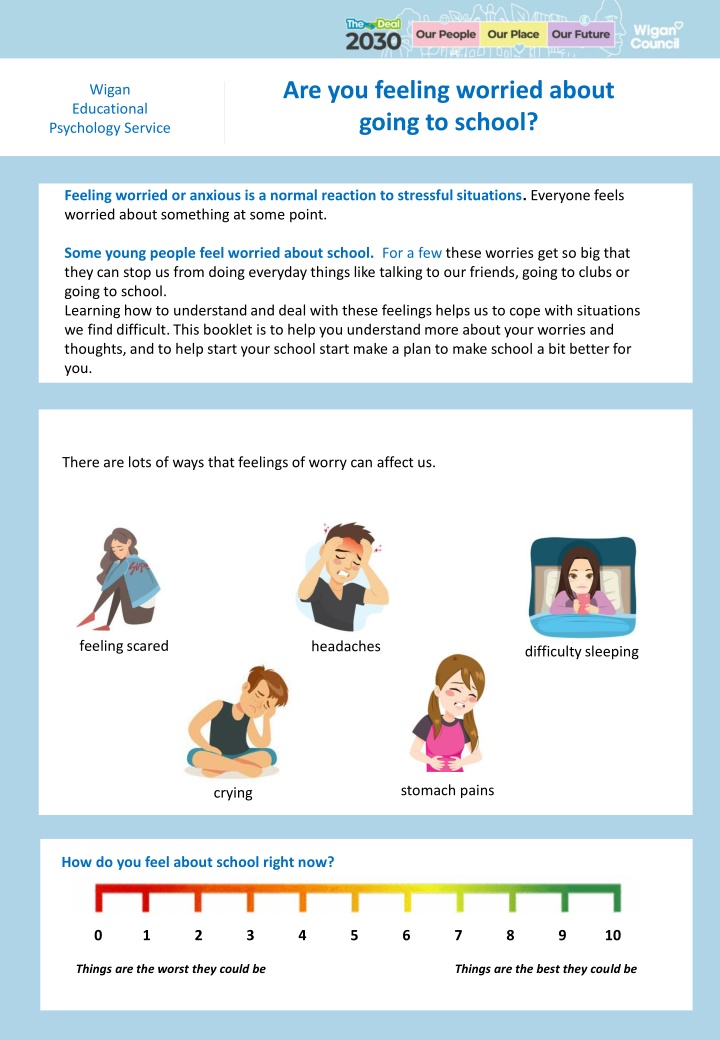
Understanding and Coping with School-related Worries
Feeling worried about school is common, but it's important to address these feelings to improve your school experience. Learn how to identify and deal with worries, and find support from adults to create a plan for a better school environment.
Download Presentation

Please find below an Image/Link to download the presentation.
The content on the website is provided AS IS for your information and personal use only. It may not be sold, licensed, or shared on other websites without obtaining consent from the author. If you encounter any issues during the download, it is possible that the publisher has removed the file from their server.
You are allowed to download the files provided on this website for personal or commercial use, subject to the condition that they are used lawfully. All files are the property of their respective owners.
The content on the website is provided AS IS for your information and personal use only. It may not be sold, licensed, or shared on other websites without obtaining consent from the author.
E N D
Presentation Transcript
Are you feeling worried about going to school? Wigan Educational Psychology Service Feeling worried or anxious is a normal reaction to stressful situations. Everyone feels worried about something at some point. Some young people feel worried about school. For a few these worries get so big that they can stop us from doing everyday things like talking to our friends, going to clubs or going to school. Learning how to understand and deal with these feelings helps us to cope with situations we find difficult. This booklet is to help you understand more about your worries and thoughts, and to help start your school start make a plan to make school a bit better for you. There are lots of ways that feelings of worry can affect us. feeling scared headaches difficulty sleeping stomach pains crying How do you feel about school right now? 0 1 2 3 4 5 6 7 8 9 10 Things are the worst they could be Things are the best they could be
Sometimes, we worry about things in school. These are some of the things that young people may worry about. Do any of them sound like you? I worry about fitting in. I find break time hard. The work is too hard. It s too noisy. It s too busy. I don t People don t understand me. understand what people are saying. I worry about doing well in tests. Sometimes, we worry about things that have nothing to do with school. These worries can affect us when we are in school. These are some of the things that young people may worry about. Do any of them sound like you? I worry about my family during the day. I worry about my Grandma who is ill. I worry about the effects of Covid- 19. I m worried about getting the bus to school. My family don t understand me.
Returning to school after some time away When things worry us, people cope in different ways. One way to cope is by avoiding the thing, person or event that makes us worry because then, by not having to deal with it, we feel better. Some young people miss a day or two of school, some people are away a lot longer. Recently, most young people have had a lot of time out of school. Some young people have worries about coming back to school again: What if my friends are not in my bubble ? What if I have missed too much work? How will I know about all of the changes in school due to Covid-19? What if there are new people I don t know? These worries are totally normal. It s important that you talk to an adult so that your plan addresses any worries that you may have. What can adults do to help? Adults have a responsibility to make sure that you have an education. Adults at school will work closely with your parents/carers to work out: The things you are good at. The things that are worrying you. Things they can change to make school a better place. The small steps that can be made to get you back into education. They may also speak to other adults, like an Educational Psychologist, to see if there is anything else which may help you to feel better. Adults will work to make a plan with small steps towards helping you to continue to be involved in everyday activities. Because this plan is about you, adults will talk to you about your thoughts, feelings and goals for the future to make sure that it meets your needs. It s really important that you are honest about how you are feeling.
It can help to share your worries with an adult that you trust. Is there anything that is making you feel anxious at the moment? Write down your thoughts and feelings here. It can help to build on things that are going well. What do you like about school? What are you good at? Write down your thoughts and feelings here. It is important that you feel your views are heard. How do you feel school could be better? How could your family and school staff help you? Write down your ideas here.
What can I do? There are lots of things you can do. Most importantly, try to look after your wellbeing. There is a 5 a day menu of ways to look after your wellbeing. Every day, it can help you find ways to: Connect ...with friends at school, people in clubs you go to, family and friends. This might be through social media, going to visit them or even sending a letter! Keep active Just half an hour of exercise a day can make a big difference. Go for a walk outside, run up and down the stairs or follow an online yoga class. Connect ...with friends at school, people in clubs you go to, family and friends. This might be through social media, going to visit them or even sending a letter! Adults at school will work with your parents/carers to make sure that you have a routine and ways to keep learning. Don t forget other ways of learning too, like reading for pleasure or learning a new hobby. Keep learning Take notice Take time out of your day to stop, clear you mind and just take notice of the world around you. Mindfulness can be helpful there s lots of apps and websites for this such as the Headspace app. Give This can be giving your time to help someone else (like helping with jobs at home or school) or even making something to give to somebody. Further support If you want more information about wellbeing and feelings these websites and books might be helpful: www.themix.org.uk or 0808 808 4994 (provides lot of information online and support by online chat, social media and a free helpline) www.kooth.com (counsellors available until 10pm daily, provides free and anonymous advice and counselling for young people) www.childline.org or 0800 1111 (provides lots of information online and support, advice and counselling through their freephone helpline, online chat or email) www.youngminds.org.uk (provides information online) www.mind.org/information-support/for-children-and-young-people (lots of information online) www.wigan.gov.uk/LINC2/survival-guide/survival-guide (information and advice from young people and professionals and a guide to local services in Wigan)









